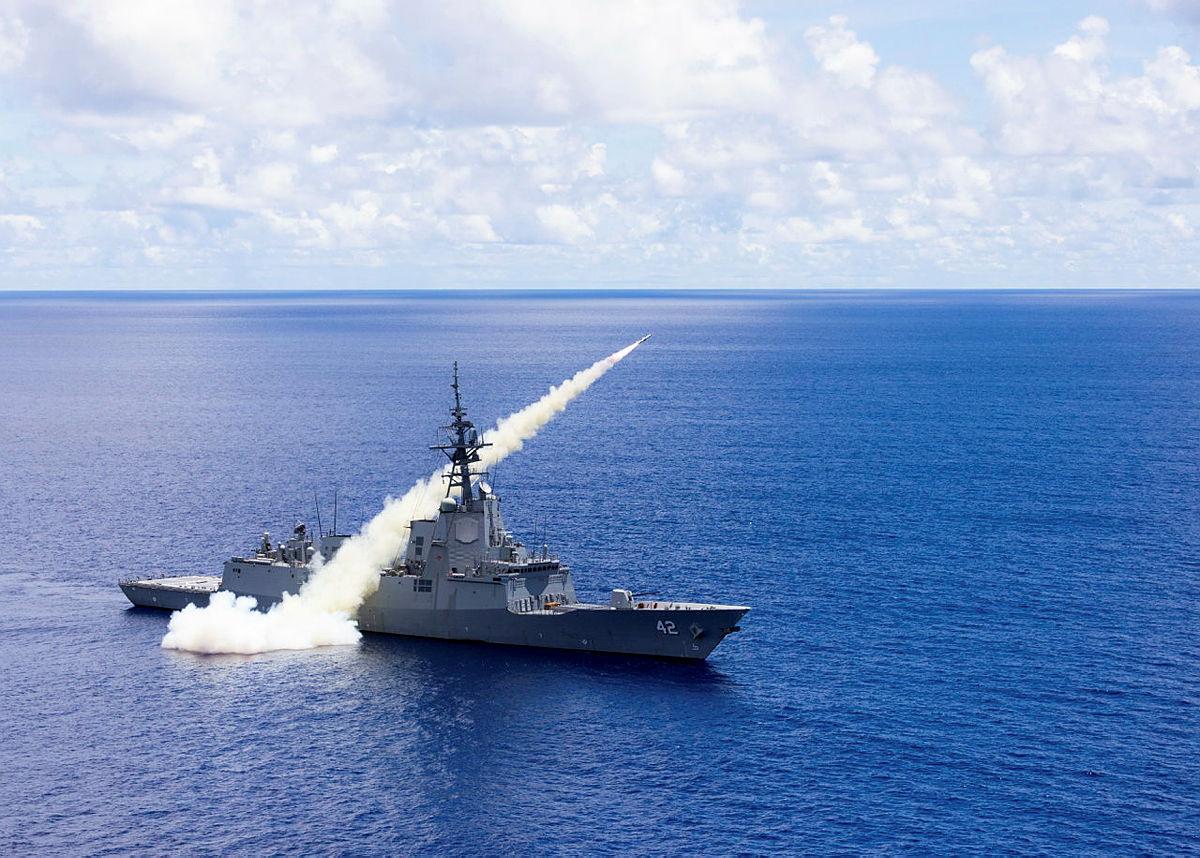
The aim of an Australian Defence Force conventional deterrence by denial capability is to ensure that key combat and support assets survive initial enemy air and missile attacks should Australia become involved in a high-intensity war.
The ADF’s strategic weight must be increased to ensure that it can respond credibly with conventional force, even after an enemy first-strike. Then the ADF must be able to continue combat operations, even under air and missile attack.
Part one of this two-part series outlined options to improve the lethality, sustainability and credibility of ADF combat capabilities. Part two builds on this foundation for deterrence by setting out diversified medium and longer-term strike options to deliver greater reach and conventional combat power to the ADF.
Medium-term strike options might include long-range unmanned combat aerial vehicles (UCAVs) or very-long-range, road-mobile missiles.
Boeing’s stealthy MQ-28A Ghost Bat UCAV has a range greater than 3,700 kilometres and, with the right research and development investments, could become a high-payload, very-long-range strike asset.
The AUKUS technology-sharing agreement increases significantly collaboration among the US, UK and Australia on development of hypersonic missile technologies. That opens up in the medium term an option for road-mobile conventional missiles with a range of 5,000–8,000 kilometres. Such missiles could use ballistic or hypersonic boost-glide technology and might be fitted with multiple manoeuvrable warheads and decoys, chaff and jammers. Potential payloads include land-attack, anti-ship or anti-submarine warheads.
From Royal Australian Air Force base Tindal in the Northern Territory, a 5,000-kilometre range would allow these missiles to hold at risk an attacker’s land and maritime targets across most of maritime Southeast Asia and the Western Pacific. A 6,000-kilometre range would place a potential adversary’s home bases in range.
The use of missiles would have the significant advantage of not requiring vulnerable tankers for in-flight refuelling, especially in face of a technologically advanced major power adversary.
A conventional strike range of 5,000–8,000 kilometres is not unprecedented. China is developing its DF-27 ballistic missile with such a range and its H-20 stealth bomber is mooted to have a payload exceeding 10 tonnes and a range of more than 8,500 kilometres.
Higher level and longer-term options for the ADF could include submarine-launched missiles and a deep-penetrating airborne strike capability. A deep penetrating airborne strike capability would require three critical components—a dedicated and highly protected airbase, bombers and fighter escorts.
In terms of submarine-launched missiles, the different capacities of the UK Astute-class and US Virginia-class nuclear-powered submarines is discussed in a previous Strategist piece. Ultimately, the Virginia has a distinct advantage in terms of missile payload and future long-range missile options.
A hardened RAAF base could be constructed in central Australia to support US-produced B-21 Raider stealth bombers and air-superiority escorts with protection from enemy air and missile attack including a missile defence shield and hardened control towers, hangars, runways and taxiways, fuel and ordnance storage, and protection for personnel. Bunkers for personnel would need nuclear, chemical and biological air filtration systems, generators, and stocks of food and water.
To generate a 16-strong combat force of B-21s, the RAAF would require approximately 30 aircraft. A bomber force is usually 55% ‘combat coded’ with 25% for training and 20% in reserve to cover attrition. The B-21’s range and payload is classified but will be vastly superior to those of the RAAF’s F/A-18F Super Hornets or F-35A joint strike fighters.
The third deterrent component would be the US Air Force ‘penetrating counter-air/penetrating electronic attack’ (PCA/PEA) aircraft, which is part of its ‘next generation air dominance’ program. It’s anticipated that this will be an air superiority aircraft able to operate in heavily defended enemy airspace on counter-air missions including sweep, escort, as well as air defence suppression or destruction missions. PCA/PEA aircraft will likely need a very large unrefuelled combat radius to be effective with less dependence on tankers.